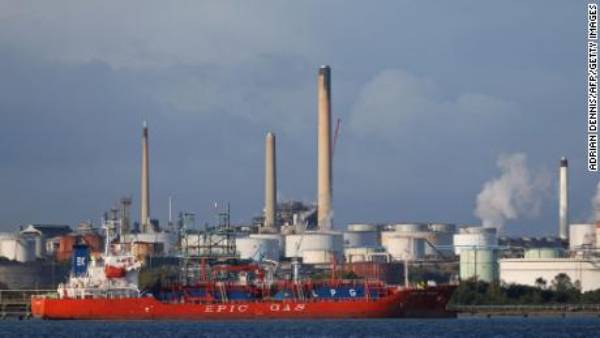
The expense of energy was bargain basement in the spring of 2020 as streets and air terminals sat almost void during the tallness of the COVID-19 pandemic.
Energy request is back today as the world economy returns — yet supply just hasn’t kept up. That is the reason U.S. oil costs have soar $120 since colliding with negative $40 a barrel in April 2020. U.S. oil costs completed above $80 a barrel on Monday without precedent for almost seven years.
Unrefined acquired 1.5% to end the day at $80.52. The last time oil shut above $80 was Oct. 31, 2014.
All of this is prompting sticker shock for some, Americans topping off at the siphon — during a period of the year when gas costs normally cool off. The public normal cost for gas hit a new seven-year high of $3.27 a gallon on Monday, up by 7 pennies in the previous week alone, as per AAA. Gas has almost multiplied since lining at $1.77 in April 2020.
$100 oil likely to work out?
Citigroup on Monday sloped up its Brent oil estimate to $85 a barrel for the final quarter and said unrefined will probably hit $90 on occasion. The Wall Street bank refered to “value virus this colder time of year” and the normal exchanging of force plants from high as can be petroleum gas to oil.
Citi added that a “freezing winter” could see Europe “running on empty” by February.
Oil has for quite some time been there as a likely substitute for petroleum gas – besides up to this point, it didn’t bode well. That is on the grounds that for a large part of the beyond dozen years, gaseous petrol costs have been exceptionally low, making changing to oil uneconomical.
Record coal costs in China
It’s not simply high petroleum gas costs that are assuming a part here.
Chinese coal costs have hit record highs in the midst of flooding in northern China that constrained the conclusion of many coal mineshafts. Coal stays the principle wellspring of energy in China, utilized for warming, power age and steelmaking. China is currently wrestling with power deficiencies, inciting the public authority to proportion power during top hours and a few nations to suspend creation.
OPEC steering the ship
While request is solid, oil supplies have basically not kept speed.
U.S. oil creation has been delayed to bounce back from COVID-19 — even as costs have flooded. Numerous U.S. oil organizations are hesitant of by and by oversupplying the market and they are undeniably more centered around returning money to investors who have lost gobs of cash over the previous decade.
Regardless of the White House’s calls for OPEC and its partners to altogether increase creation, the gathering has just continuously expanded yield sidelined in mid 2020. For the time being, they appear to be content to let oil costs stay raised.
“They have consistently been the swing maker,” said Kpler’s Smith, “yet my gosh they positively hold the force at this moment.”
Zoey Gonzales s a Editor of Funds Management . she studied English Literature and History at Sussex University before gaining a Masters in Newspaper Journalism from City University. Amy is particularly interested in the public sector, she is brilliant author, she is wrote some books of poetry , article, Essay. Now she working on Funds Management.
Disclaimer: The views, suggestions, and opinions expressed here are the sole responsibility of the experts. No FUNDS MANAGEMENT journalist was involved in the writing and production of this article.
